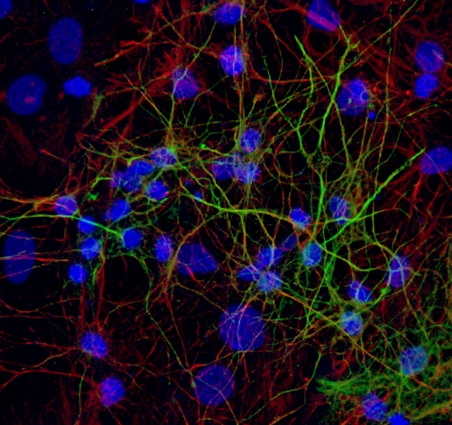Home
Research group of Neurotoxicology

Welcome to the Neurotoxicology Research Group of the Institute for Risk Assessment Sciences (IRAS)! We investigate the cellular and molecular mechanisms of action of toxic substances (food-related products, health products, drugs and environmental contaminants) on the nervous system.
Within all projects focus is on the use of in vitro systems. Models for cell-cell communication (neurotransmission and innate immune system) and for studying human receptor effects as well as developmental aspects of toxicity receive specific attention. Techniques include measurements of cytotoxicity (using biochemical techniques), cell stress (using cellular imaging of reactive oxygen species), exocytosis (using amperometry and cellular imaging), voltage-gated and ligand-gated ion channels function (using patch clamp techniques), intracellular Ca2+ concentration (using single cell fluorescent microscopy) and neuronal network activity (using multi-electrode array (MEA) recordings).
Research focuses on adverse effects of toxic substances on neuronal network activity, membrane signaling through membrane receptors and ion channels, and on cellular communication through exocytosis. Additionally, intracellular signaling cascades and neurodevelopment are studied for further hazard characterization of various classes of environmental toxicants. Projects focus on those exposures that are associated with strong societal concern (e.g., alternative flame retardants, drugs of abuse and electromagnetic fields) and/or neurodegenerative disorders, such as Parkinson’s Disease (e.g., pesticides and chemical mixtures) and/or developmental neurological disorders, such as ADHD/ASD (chemical mixtures of pesticides and persistent organic pollutants).




